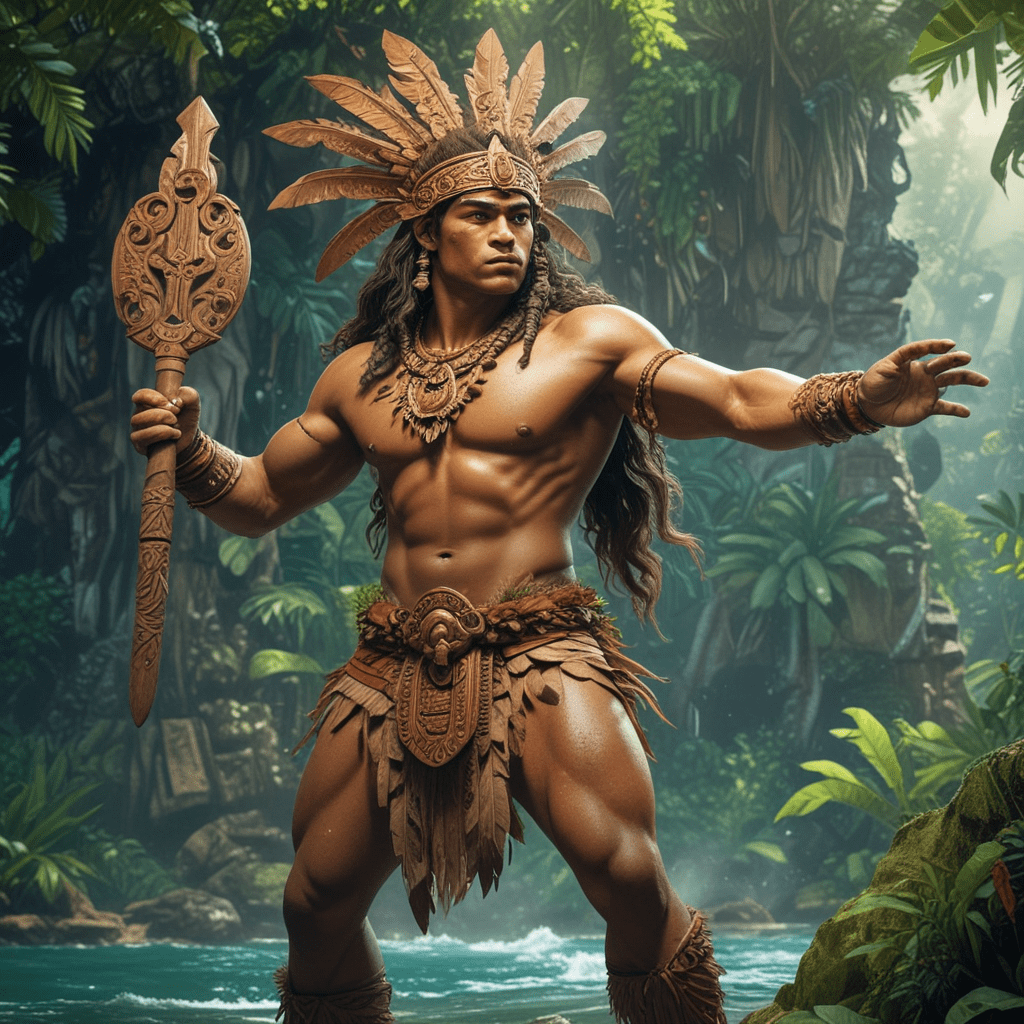The Cycle of Change: How Myths Embrace Transformations
Introduction to Myths and Change
Myths are traditional stories that have been passed down through generations, often explaining natural phenomena, cultural practices, and human behavior. They hold significant cultural importance as they encapsulate the values, beliefs, and experiences of a community. Change, on the other hand, is a fundamental aspect of the human experience, representing growth, evolution, and the passage of time.
This article explores how myths not only reflect changes but also embrace them, serving as a lens through which we can understand the transformations in our lives and societies.
The Nature of Change in Myths
Change is a universal theme that permeates storytelling across cultures. Myths often illustrate the journey of characters who undergo profound transformations, highlighting the necessary conflict and eventual resolution that accompany these changes.
Transformations can be categorized into three main types:
- Physical Transformations: Changes in appearance or form, such as shape-shifting.
- Psychological Transformations: Internal changes in beliefs, values, or identity.
- Social Transformations: Changes in relationships, community roles, or societal structures.
Iconic Myths of Transformation Across Cultures
Throughout history, various cultures have shared iconic myths that emphasize the theme of transformation. For example:
- The Phoenix: A mythical bird that is consumed by flames and rises anew from its ashes, symbolizing rebirth and renewal.
- The Hero’s Journey: A narrative arc where a hero undergoes trials and emerges transformed, often reflecting personal growth and self-discovery.
Comparative studies reveal that similar themes of transformation exist in myths from different cultures, including:
- Greek Mythology: The metamorphoses of characters like Daphne into a laurel tree.
- Native American Myths: Stories of creation and transformation that emphasize harmony with nature.
- Asian Mythology: The concept of enlightenment and transformation in Buddhism.
These transformations are significant as they provide insights into the values and beliefs of the cultures from which they originate.
The Psychological Perspective: Myths and Personal Growth
Myths serve as powerful metaphors for individual transformation, often reflecting the psychological journey of personal growth. Carl Jung’s theories on archetypes suggest that these stories resonate with universal human experiences, allowing individuals to identify with mythological characters and their journeys.
Case studies of individuals who resonate with mythological transformations reveal how these narratives can inspire and guide personal change. For instance, someone undergoing a significant life transition may find solace in the story of Persephone, who experiences a cycle of descent and return, mirroring their own journey through challenges and growth.
Cyclical Nature of Change in Mythology
Many myths embody cyclical patterns of change, often illustrated through the concepts of birth, death, and rebirth. These cycles are not only central to individual narratives but also reflect broader societal changes and values.
Seasonal myths, such as those celebrating spring and harvest, exemplify the relationship between natural cycles and human experience. They illustrate how societies adapt to and value the rhythms of nature, reinforcing the idea that change is both inevitable and necessary.
Modern Interpretations of Mythical Transformations
Contemporary literature and media frequently reinterpret ancient myths, making them relevant to modern society. These modern adaptations often explore themes of change and transformation, resonating with audiences facing their own challenges.
Notable examples include:
- Movies: Films like “The Lion King” echo the Hero’s Journey, showcasing themes of growth and responsibility.
- Literature: Novels such as “Circe” by Madeline Miller reinterpret Greek myths from a modern perspective, emphasizing female empowerment and resilience.
These modern works highlight the enduring relevance of myth and its capacity to address contemporary issues.
Myths as Tools for Coping with Change
Myths can provide comfort and guidance during times of change, helping individuals navigate the complexities of life. The therapeutic potential of myth in psychology and personal development is significant.
Community storytelling fosters resilience by creating shared narratives that help individuals cope with challenges. Through these stories, people can find meaning and connection, reinforcing their ability to adapt to change.
Challenges and Misinterpretations of Myths
Despite their significance, myths are often misinterpreted. Common misconceptions include oversimplifying transformations or viewing myths as mere entertainment rather than profound cultural narratives.
Additionally, the dangers of cultural appropriation in modern interpretations can undermine the original meanings and contexts of these myths. It is crucial to approach myths with respect and an understanding of their cultural significance.
Creating New Myths in a Changing World
As societies evolve, there is a role for storytelling in shaping new narratives around change. Individuals and communities can create their own myths that reflect current societal transformations, offering new frameworks for understanding and coping with change.
Examples of contemporary myths include:
- Environmental Narratives: Stories that highlight the importance of sustainability and our relationship with nature.
- Social Justice Narratives: Myths that empower marginalized voices and advocate for change.
These new myths can inspire collective action and reflection in response to the challenges of the modern world.
Conclusion: Embracing the Cycle of Change
Myths are a powerful reflection of the human experience, encapsulating the cycles of change that define our lives. By understanding the transformations depicted in myths, we can gain insights into our own journeys and the collective narratives that shape our societies. Embracing these cycles allows us to navigate change with resilience, fostering personal growth and community strength.



